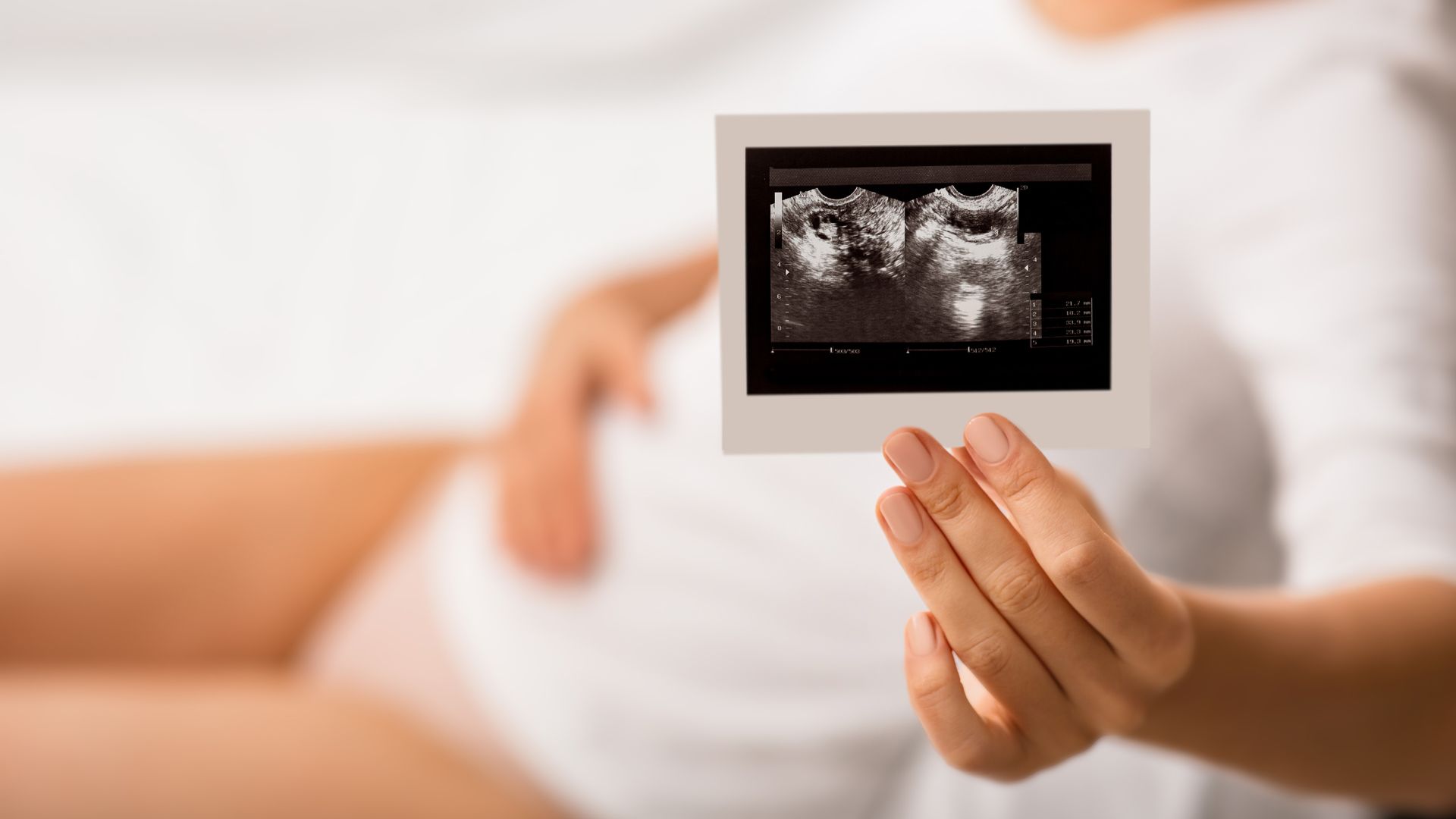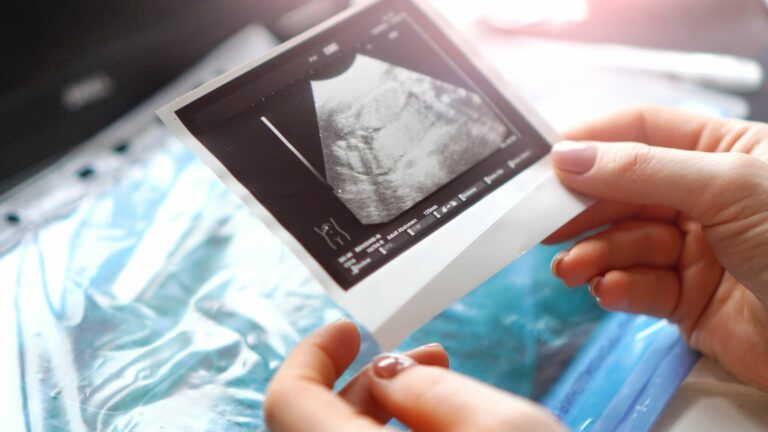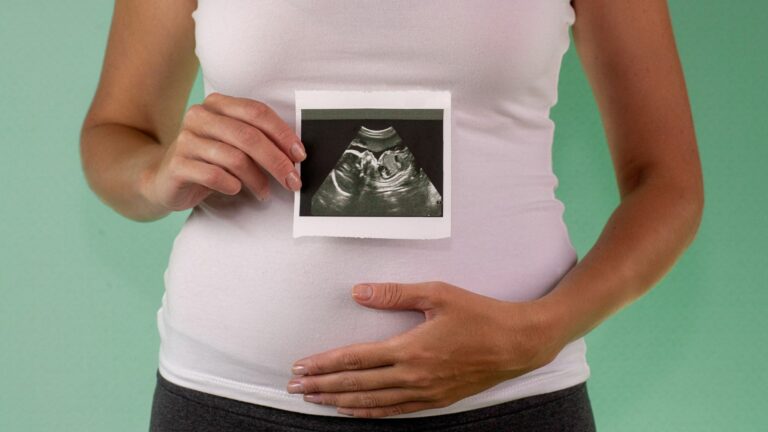
In today’s era, advanced medical technologies such as In Vitro Fertilization (IVF) have become beacons of hope for countless couples facing challenges in conceiving naturally.
IVF is a complex procedure that involves the stimulation of the ovaries, retrieval of eggs, fertilization in a laboratory, and transferring the embryos back into the uterus.
To understand the IVF process in detail, it’s important to discuss all facets, including potential obstacles like ovarian cysts.
Ovarian cysts are fluid-filled sacs that develop on or inside the ovaries. While often benign, these cysts can vary widely in type and size, sometimes causing pain, discomfort, or more serious reproductive issues.
In the context of IVF, understanding the influence of ovarian cysts is crucial, as they can impact the efficacy of the treatment.
In India, a growing number of couples resort to IVF and face concerns about how ovarian cysts might affect their journey.
This dataset aims to demystify ovarian cysts and IVF, providing essential knowledge and empowerment.
For couples seeking IVF, choosing the right fertility clinic and finding a knowledgeable IVF doctor are pivotal steps. Comprehensive care and expert advice can significantly ease the IVF process and enhance the chances of success.
Key Takeaways:
- Understanding IVF: In-depth knowledge of how IVF works is crucial before beginning your treatment journey.
- Impact of Ovarian Cysts: Not all ovarian cysts interfere with IVF, but certain types and sizes can affect the treatment outcomes.
- Empowerment through Knowledge: Being informed about potential challenges and management strategies can empower couples during their IVF journey.
- Consultation and Care: Early and thorough consultations with a fertility specialist can help tailor the IVF process to accommodate and mitigate issues related to ovarian cysts.
This introductory segment sets the stage for a deeper exploration of ovarian cysts types, their impact on IVF, and possible management strategies, ensuring that readers are well-informed and prepared for their IVF journey in the face of these challenges.
With each step carefully planned and managed, couples can look forward to achieving their dream of parenthood, despite the hurdles that might come along.
Demystifying Ovarian Cysts: Types and Prevalence
Ovarian cysts are more common than many might think, affecting approximately 1 in 10 women during their reproductive years.
These cysts are fluid-filled sacs that can occur on or inside the ovaries and are typically discovered during routine health examinations or specific diagnostic tests for unrelated symptoms.
Types of Ovarian Cysts
Functional Cysts:
- Follicular Cysts: These develop when the follicle does not rupture or release its egg, continuing to grow instead.
- Corpus Luteum Cysts: After an egg is released, the empty follicle sac typically dissolves. However, if it does not dissolve and closes up, additional fluid can develop inside, forming a cyst.
- These cysts are often harmless, do not cause pain, and usually disappear within two to three menstrual cycles.
Dermoid Cysts:
- Also known as teratomas, these cysts are notable because they can contain hair, skin, or even teeth. They arise from cells that make eggs and, although usually benign, can grow large and cause discomfort.
Cystadenomas:
- These cysts form on the surface of an ovary and could be filled with a watery or mucous material. While they can become quite large and potentially painful, they are typically non-cancerous.
Endometriomas:
- Often associated with endometriosis, these cysts form when endometrial tissue grows on the ovaries. They are problematic as they may affect fertility and are considered in IVF treatments for patients with endometriosis.
Understanding the type of cyst is crucial in determining potential impacts on fertility and IVF procedures.
While most ovarian cysts are benign and do not affect fertility, their type, size, and location can influence decisions in the IVF process.
Prevalence and Impact on Fertility
Most ovarian cysts are benign and resolve on their own. However, when considering IVF, common questions arise about whether cysts could negatively affect the outcome.
The presence of cysts like endometriomas can impact the quality of eggs and the environment of the uterus, thus potentially lowering the chances of successful implantation.
Key Takeaways:
- Types of Cysts Matter: Not all cysts are created equal, and understanding the difference helps in managing them effectively during IVF.
- Prevalence: Knowing that cysts are common can alleviate concerns; regular screenings and discussions with your doctor are essential.
- Impact on Fertility: While many cysts do not impact fertility, specific types like endometriomas may require special attention during IVF.
Impact of Ovarian Cysts on IVF and When to Consider Intervention
Understanding how ovarian cysts might affect the IVF process is crucial for preparing and managing expectations.
While many cysts are benign and resolve on their own, certain types, sizes, or locations of cysts may necessitate medical intervention to optimize the outcomes of IVF treatments.
When Do Ovarian Cysts Interfere with IVF?
Cyst Size and Location:
- Large cysts, particularly those over 5 cm, can obstruct the retrieval of eggs or cause distortions in the ovarian anatomy, which might complicate the process.
- Cysts located near the sites where eggs are retrieved can be problematic, potentially damaging the eggs or making retrieval difficult.
Type of Cyst:
- Endometriomas are particularly concerning in IVF as they are associated with endometriosis, which can reduce egg quality and implantation success due to the inflammatory environment it creates.
For individuals undergoing IVF, early detection and management of cysts can be a game-changer. Initial screenings, such as a pelvic ultrasound, are essential parts of the preparatory stages in IVF, ensuring any cysts are identified and appropriately managed.
Management Strategies
The management strategy for ovarian cysts in the context of IVF often depends on the type, size, and impact of the cysts:
Monitoring:
- Small and non-symptomatic cysts are typically monitored throughout the IVF cycle to ensure they do not grow or interfere with the ovaries’ response to stimulation.
Medical Intervention:
- Hormonal treatments, such as birth control pills, may be recommended to suppress the cysts temporarily, particularly in cases where they are functional and expected to resolve on their own.
Surgical Removal:
- For persistent cysts that pose a risk to the success of IVF (such as large cysts or endometriomas), surgical intervention may be considered.
The preferred method is often laparoscopy, a minimally invasive surgery that allows for quicker recovery and minimal disruption to the reproductive organs.
Key Takeaways:
- Timely Intervention: Addressing cysts before beginning IVF can prevent complications during egg retrieval and improve overall success rates.
- Tailored Strategies: Depending on the cyst type and characteristics, specific management strategies are recommended to ensure optimal conditions for IVF.
- Consult Expertise: Regular consultations with fertility specialists help tailor individual treatment plans and anticipate potential challenges.
Understanding when and how ovarian cysts might interfere with IVF treatment allows for better preparation and management, potentially enhancing the chances of success.
In the forthcoming section, we will delve deeper into specific management strategies for ovarian cysts during IVF in India, providing practical advice and considerations for those undergoing or planning to start IVF treatment.
Management Strategies for Ovarian Cysts During IVF in India
Navigating the challenges of ovarian cysts during IVF requires a robust management plan tailored to the specifics of each case.
In India, where IVF has become a hope for many, understanding and implementing effective strategies for dealing with ovarian cysts is especially important.
Common Management Approaches:
Monitoring and Regular Assessments:
- For smaller cysts that are likely to resolve on their own, continuous monitoring with periodic ultrasounds during the IVF cycle is crucial. This ensures they do not interfere with the ovaries’ response to hormone stimulation or the egg retrieval process.
Hormonal Medication:
- Oral contraceptive pills may be prescribed before starting IVF to suppress the formation of new cysts and potentially reduce the size of existing ones. This approach is often used for functional cysts or mild endometriomas, facilitating a clearer pathway for IVF.
Surgical Intervention:
- Surgical removal might be recommended for larger cysts or those which might impede the success of IVF. Minimally invasive surgery like laparoscopy is preferred due to its lesser impact on the body, quicker recovery times, and minimal scar tissue formation, which is crucial for preserving fertility.
- The timing of surgery is strategically planned to avoid disruption to the IVF timeline. Ideally, any surgical intervention should occur a few months before the commencement of IVF to ensure complete healing and optimal ovarian response to stimulation.
Practical Considerations:
Choice of IVF Center: The facility where IVF is carried out plays a critical role. It’s important to choose a center well-equipped for handling complications like ovarian cysts. Top IVF centers in India, such as those in Chennai, Kolkata, and Lucknow, have specialized protocols and experienced professionals to manage these conditions effectively.
Professional Guidance: Continuous guidance from a skilled IVF doctor is crucial. They can provide personalized advice based on the specifics of your ovarian cysts and IVF requirements.
Mental and Emotional Support: The IVF journey, compounded by issues like ovarian cysts, can be stressful. Engaging in supportive practices such as yoga and meditation can be beneficial.
Additionally, joining support groups can provide comfort and a shared understanding from those undergoing similar experiences.
Key Takeaways:
- Strategic Management: Tailoring the approach to the type and size of the cyst ensures minimal disruption to IVF.
- Advanced Care Facilities: Utilizing advanced IVF centers with the expertise to handle complex cases can significantly enhance successful outcomes.
- Holistic Support: Beyond medical treatments, holistic approaches and emotional support are vital for a positive IVF experience.
Peace of Mind: Addressing Concerns and Building a Support System During IVF with Ovarian Cysts
Embarking on an IVF journey can be emotionally taxing, especially when complicated by concerns such as ovarian cysts.
Understanding these challenges and adopting strategies to manage emotional health are crucial for maintaining resilience and optimism throughout the process.
Addressing Common Concerns:
Impact on Fertility:
- A frequent worry is whether ovarian cysts will impact the quality of eggs or the success of IVF. While cysts like functional cysts typically do not interfere, endometriomas may affect egg quality. Discuss these specifics with your fertility specialist to understand your situation better.
Surgical Interventions:
- The thought of needing surgery can be daunting. It’s important to understand that if surgery is recommended, it is strategically timed and performed to enhance, not hinder, the success of IVF. Modern techniques such as laparoscopy make surgery less invasive with quicker recovery times.
Delays in Treatment:
- Concerns about delays caused by treating cysts are common. Strategic planning ensures that any required treatments or surgeries are done well before starting the hormone treatments for IVF, minimizing delays.
Cost Considerations:
- The financial aspects of managing cysts and undergoing IVF can be overwhelming. Many IVF centers offer financial guidance and support to help manage these concerns, including potential insurance coverages and payment plans.
Building a Strong Support System:
Professional Support:
- Regular consultations with your IVF team not only help monitor the physical aspects of treatment but also provide an opportunity to address any emotional or psychological concerns. They can refer you to counseling services if needed.
Community and Peer Support:
- Joining IVF support groups can provide emotional support and valuable insights from others who are experiencing similar challenges. These groups offer a platform for sharing experiences and receiving encouragement.
Personal Well-being:
- Practices such as yoga and meditation are recommended to help manage stress and maintain emotional balance. These activities can improve your overall well-being, making you better prepared for the demands of IVF treatment.
Family and Friends:
- Keeping close contact with supportive family members and friends can provide the necessary emotional support to navigate this journey. Their understanding and encouragement can be a major source of strength.
Key Takeaways:
- Open Communication: Regularly discussing your concerns with your IVF team helps in managing expectations and reducing anxiety.
- Support Networks: Leveraging both professional counseling and peer support systems can significantly alleviate the emotional burden of IVF.
- Self-care: Engaging in self-care practices supports emotional resilience, helping you stay centered and optimistic.
In conclusion, while ovarian cysts present certain challenges in the IVF process, proper management, informed decision-making, and robust support systems can lead to successful outcomes and a more positive experience.
Remember, you’re not alone in this journey, and there are multiple channels of support ready to assist you every step of the way.
Further Reading and Resources
This section not only addresses the practical and medical aspects of managing ovarian cysts during IVF but also emphasizes the importance of emotional well-being, rounding out a comprehensive guide to navigating these challenges effectively.






